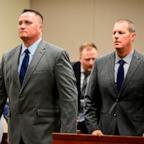End-of-Life Choices a Complicated Affair
Aug. 30 -- FRIDAY, Aug. 29 (HealthDay News) -- End-of-life and other critical medical decisions that arise when patients can't make their own choices are often complex affairs, new research shows.
They typically take into account family wishes and even physician preferences, knowledge and authority.
Dr. Alexia Torke, lead author of a study in the summer issue of The Journal of Clinical Ethics and an assistant professor of medicine at the University of Indiana School of Medicine in Indianapolis, found that standard approaches in the fields of medical ethics and laws often don't solve the problem of difficult decision-making.
"It's more complicated than you would think," she said.
Added Craig Borchardt, an assistant professor of humanities in medicine at Texas A&M Health Science Center College of Medicine, "Historically, patient autonomy was something we really needed to pay attention to over the last 20 to 30 years, this whole issue of medical technology and making sure patients have a say over their care. But what we're learning is that patients cannot make decisions in a vacuum, because they really experience a series of relationships that affect who they are as a person, and that's especially true when they have medical care. My perception of this article is that it validates reality."
From the landmark right-to-die case of Karen Ann Quinlan, in which the New Jersey Supreme Court ruled that patients should not lose the right to refuse medical therapy even though they may be unable to speak for themselves, to Terry Schiavo, the latest media-dominated example of the controversy, dealing with the issue has never been easy.
"It seems to be especially difficult to make life-and-death decisions for patients who can't speak for themselves," Torke said. "Physicians on the ground every day wrestle with this. . . . We wanted to find out more about what it is like for physicians on the ground."
Torke and her team interviewed 21 physicians at a Midwestern hospital, asking them to identify a time when they had to make a major surrogate decision.




